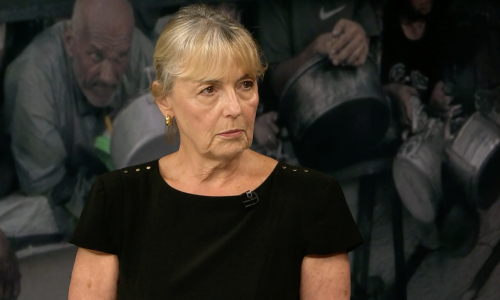Croatian People's Party (HNS) senior official Vesna Pusic has said that redrawing the boundaries of constituencies ahead of parliamentary elections is unlawful, expressing hope that the Croatian Democratic Union (HDZ) will scrap that plan.
"It is against the Constitutional Law", Pusic said on Monday, recalling that Article 5 of the constitutional law on the implementation of the Croatian constitution reads that the laws regulating the election of deputies to the Croatian parliament will be adopted no later than one year before regular parliamentary elections.
Pusic stressed that the article refers to all laws regulating the election of MPs, including the law on electoral areas.
She added that the Croatian voters' register was a disputable document, as an expert whom the government tasked with analysing voters' lists a few years ago established that the register included at least 400,000 names of voters in whose existence he was not certain.
The updating of voters' lists is obviously the first step for some other elections in the future, she said, adding that this job was impossible as long as the current law on the voters' register was in force. The existing legislation enables changing data in lists only if individuals request the changes to be made. No other source of information or any other data base can be used for updating the voters' register, Pusic explained.
Apart from the HNS, another opposition parliamentary party -- the Labour Party -- on Monday criticised the announcement by the HDZ presidency to move electoral redistricting.
Labour Party leader Dragutin Lesar said that the deadline for amending the election legislation had expired on 11 March and attempts by the ruling coalition to change the boundaries of the constituencies would be not a blow to the constitutional order.
Lesar called on Constitutional Court President Jasna Omejec to say why that court gave its opinion on the need to adjust the size of constituencies to the law on the election of Croatian MPs only on 8 December last year and why the court came short of giving a verdict on the matter instead of an opinion.
































